The Nigerian automotive industry currently assembles only commercial vehicles, which are easier to produce, but Nigeria also needs car assembly production to fully benefit from the industry’s potentials. Motoring World’s Associate Editor, DOROTHY NEJE writes on the challenges involved and the need for the incoming Rtd. General Buhari’s government to intensify efforts to establish a vibrant auto assembling industry in the country to fast track economic growth.
[dropcap]R[/dropcap]eports have revealed that Nigeria and Bangladesh are the only well populated countries without a developed automotive industry. With our current population and economy; our potential vehicle market is about a million vehicles a year.
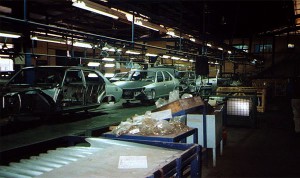
The world over, it is known that the automotive sector is the highest employer of labour, yet until recently, Nigeria, being the 7th most populous economy in the world, with a growing middle class of 38 million, and a potential vehicle market of one million vehicles annually, has not had a vibrant auto assembling industry.
The need to correct this led to the federal government’s move in mapping out the auto policy to attract foreign manufactures, which will develop assembling plants in the country.
Major vehicle manufacturers, namely: Toyota, Nissan, GM and VW, now concentrate on assembling and produce only about 30% of the over 2000 parts in a car. They outsource the rest from competent suppliers. A job in a typical assembly plant generates three others in the component supply and seven others in the raw materials supply industry.


The industry, therefore, creates many SME’s as well as direct and indirect jobs. Nigeria is well positioned to be a major assembly hub for international automobile companies due to our existing installed auto capacity, large labour force, significant local demand and strategic location for exports.
Already Original Equipment Manufacturers, OEMs, have a number of joint ventures relationships with partners, who supply most of their parts, which leads to significant investment from partners who in turn can partner with the numerous SME’s in Nigeria.
Data from Nigeria Automotive Manufacturers Association NAMA, the Nigerian Bureau of Statistics NBS and the United Nations Conference on Trade and Development UNCTAD, informed that a total of about 400.000 vehicles, 100,000 new and 300,000 used valued at over N550 Billion (US$3.451), were imported into Nigeria 2012.
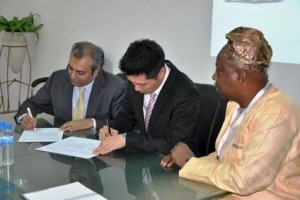
At full capacity, the Nigerian automotive industry has the potential to create 70,000 skilled and semi-skilled jobs along; also other jobs would be created in the raw materials supply industries. Currently 2,584 people are directly employed by the assembly plants.
Considering the above, establishing auto assembly plants will be one of the major keys to economic growth, yet to make profit, an auto manufacturer needs to produce 7,000 to 8,000 vehicles, anything below will likely result in a loss.
Apparently establishing an automobile assembly plant is a tall order. It is a long term investment and highly capital intensive. To actualize this dream, experts have posited that developing the local content is very crucial. So the government must make desperate and determined move to ensure that this aspect is well funded to fast track the project
In a recent interview with the media, the Director General of National Automotive Council(NAC), Engr. Aminu Jalal informed that the government with the intent to revive the activities of auto component manufactures, has given N11.5 billion loan to 32 companies to assist them in production.
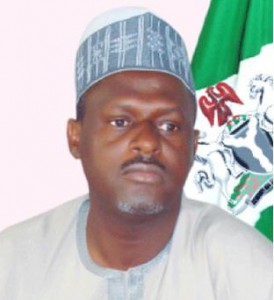
Jalal said the companies got the loan at an interest rate of 7.5 per cent, listing the companies as belonging to the filter, plastic, tyre, those that mould bumpers and dash board, among others.
He, however, pointed out that they had a challenge with competition from importers of similar products from China and India. These products come much cheaper, saying that those who survive are those who trade by the side, importing and producing.
Jalal hinted that part of the measures to ensure a smooth sail for the auto policy and subsequent building of the assembling plants in the country was the joint signing of Memorandum of Understanding, MOU between Bosch and NAC and another one with WESBANK of South Africa last year.
He explained that the deal with Bosch is to coordinate training of mechanics, who will train the trainers.
“Bosch will use their experience and manpower to train the trainers, who will now train people who work in the workshops to service vehicles”, Jalal explained. “They will provide modern equipment to repair and maintain vehicles; also they will provide quality spare parts. Bosch themselves manufacture vehicle spare parts, like plugs, filters, batteries and brake pads”.
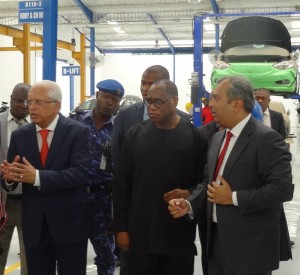
This move was successfully implemented early this year when NAC trained mechanics across the 36 states of the Federation.
According to the NAC boss, signing of MOU with Wesbank is “to ensure that we have affordable vehicle finance services scheme in Nigeria. Wesbank accounts for one-third of the finances of vehicles sold in South Africa. So they are using their expertise to come here and set up a viable vehicle financing scheme”.
This process was successfully kicked off this year, when the WESBANK team from South Africa visited Nigeria to officially discuss the possibility of introducing vehicle finance scheme for made in Nigeria vehicles.
Aside the challenges of setting up an assembling plant, which seem to almost become a feat accomplished, industry watchers have questioned the possibility of Nigerian assembled vehicles accepted internationally, considering the fact that already Japanese and Chinese vehicles are easily acceptable in other parts of the world. But for Nigeria vehicles, a new entrant, it may be a Herculean task.
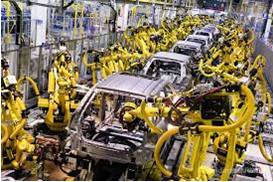
But the DG of NAC saw this from a different perspective. According to him, the first thing is to ensure that we attract foreign investors, the Original Equipment Manufacturers( OEM) to come into the country and establish the assembly plants. With this on ground, Nigeria can now develop the local parts for the original equipment.
Jalal pointed out that, because the OEMs will have their logos on these vehicles, which they supplied about 30 per cent of the parts, the international market will certainly accept the Nigeria Assembled vehicles.
Although the government may have taken bold steps towards mapping out the National automobile policy and subsequent activities to kick start it, there are apprehensions in some quarters that the major setback the policy may suffer is implementation.
It is, therefore, necessary that the government keeps a close monitor on the implementation level to ensure that the following measures, which are recommended for a vibrant automobile assembling industry, is achieved.
Some of the recommendations made by Jalal include the fact that market should be regulated, the ratio of imported vehicles to those assembled in the country should be regulated until zero import was achieved.

Another method that will be used to develop the market is to discourage smuggling; he said that the Nigeria Customs will check all registered vehicles to ensure they paid the correct duty.
The Nigeria Auto Policy, he said is a 10-year programme. Initially, that has many elements and can be reviewed, and that standards will be established in collaboration with the standards organisation of Nigeria (SON).
According to him, 10 centres will be established for the purpose. Already over 170 standards have been adopted, in addition to 104 safety standards and will continue to do more. But before they are ready, manufacturers will use the standards of other countries. Manufacturing plants are also expected to acquire ISO-certification to ensure all their processes conform to international norms.
The manufacturers, Jalal said, are expected to have training facilities for capacity building, particularly on maintenance, adding that some universities and technical schools have automotive engineering and technician departments.

On infrastructure development, he said, “We are mindful that we have infrastructure deficiency, but if we wait, we may never start. Therefore the council is working with state governments to have land, where we can set up workshop for the manufacture of spare parts, particularly in industrial estates. We already have offer from Osun, Delta and we are working to get land in Kaduna, Lagos and Anambra where we already have automobile operations”.
Another major aspect, which stakeholders pointed out must be considered, is the need to carry dealers on the used vehicle,( popularly known as tokunbo) along . According to them shutting them out of the programme may make the government’s job tough, considering the fact that members of the association of used vehicle marketers are about 3 million across the nation. This certainly is a large number to be thrown out of job.
Rather than throwing them into the labour market they could serve as marketers for the made in Nigeria vehicles Some of the dealers have been in business for long, and sold new vehicles before branching into the sale of used vehicles, because of the economic decline, hence engaging them in the new
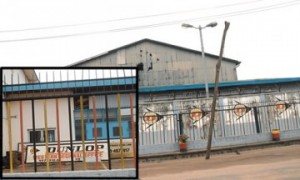
programme will help the government win the war against smuggling.
Obviously, the policy is laudable. Continuous implementation of these already mapped out strategies by General Buhari’s led government will, certainly, help to nip the challenge of the policy on the bud, as the automobile industry is known to be the highest employer of labour the world over.
Though some automobile marketing companies in the country claimed they have started assembling cars, and even presented vehicles purported to have been assembled from these plants, truth however, is, only PAN Nigeria actually has a functioning and efficient automobile plant for cars in the country. Apart from ensuring continuity of the revival of this important industry, the incoming government should in addition ensure that every assembler play and operate strictly by the rules. Any form of underhandedness might defeat the purpose of the revival.



